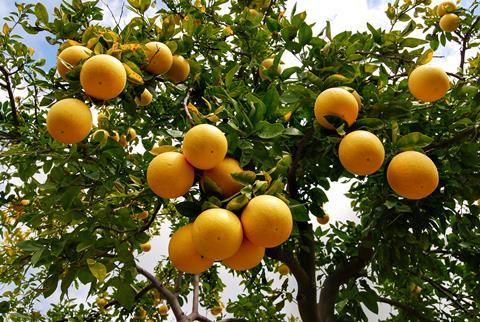Organisation claims measures undermine the role of and confidence in the rule of competent authorities

The World Citrus Organisation (WCO) has raised serious concerns about the growing trend of private food safety standards imposed by retailers. It warns that “these non-scientific requirements threaten the sustainability of the citrus sector, jeopardise farmers’ livelihoods, and may ultimately reduce supply to consumer markets”.
Over the last few weeks, the WCO has been evaluating, with its members, the impact on the citrus industry of the proliferation of private standards, primarily on plant protection products and maximum residue levels that exceed national and international rules. According to the WCO, “these measures contradict scientific evidence and undermine the role of and confidence in the rule of competent authorities”.
Boitshoko Ntshabele from South Africa’s Citrus Growers Association (CGA) commented: “While citrus growers comply with national and international regulations to ensure safe and nutritious fruit, retailers are increasingly enforcing private rules that exceed legal requirements and might impact volume and competitiveness of trade”.
He added, “This might limit the efficiency of the necessary treatment to mitigate the evolution of pests and disease as a result of climate change.”
These key risks and challenges are highlighted in the WCO position paper “Private Food Safety Criteria and their impact on the citrus sector”, presented at Fruit Attraction in Madrid and published in three languages (English, Spanish, and French) for maximum outreach. The position paper highlights the following main points:
• Bans on legally approved active substances – threatening pest and disease control.
• Imposing stricter Maximum Residue Limits (MRLs) than those set by law – leading to resistance build-up, food waste, and economic losses.
• Restrictions on the number of residues – making Integrated Pest Management (IPM) unworkable, reducing resilience against climate change, and increasing waste.
The WCO is urging retailers to refrain from setting private food safety criteria beyond legal frameworks. Jose Antonio Garcia Fernandez from Ailimpo in Spain said: “It is important to enter into constructive dialogue within the supply chain to avoid a proliferation of subjective requirements that will add confusion and unnecessary costs on growers”.
He added: “Failure to do so could compromise fruit quality, increase food waste, and ultimately limit the availability of citrus on supermarket shelves”.
Bard Bennis of Morocco’s Les Domaines Agricoles, said: “As president of WCO, I welcome this important analysis conducted by the association. Among the fruit and vegetable categories, citrus is one of the largest groups, with around 135mn tonnes produced annually on 10mn ha around the world.
“Every year, depending on market supply and demand, between 45 to 50mn tonnes are traded globally with a value of over US$50bn The citrus industry is bringing health to consumers thanks to the genuine properties of citrus fruit.
“Our growers take this role seriously and comply with the most responsible and sustainable agriculture practices to bring confidence to consumers around the world with quality and safe citrus.”



